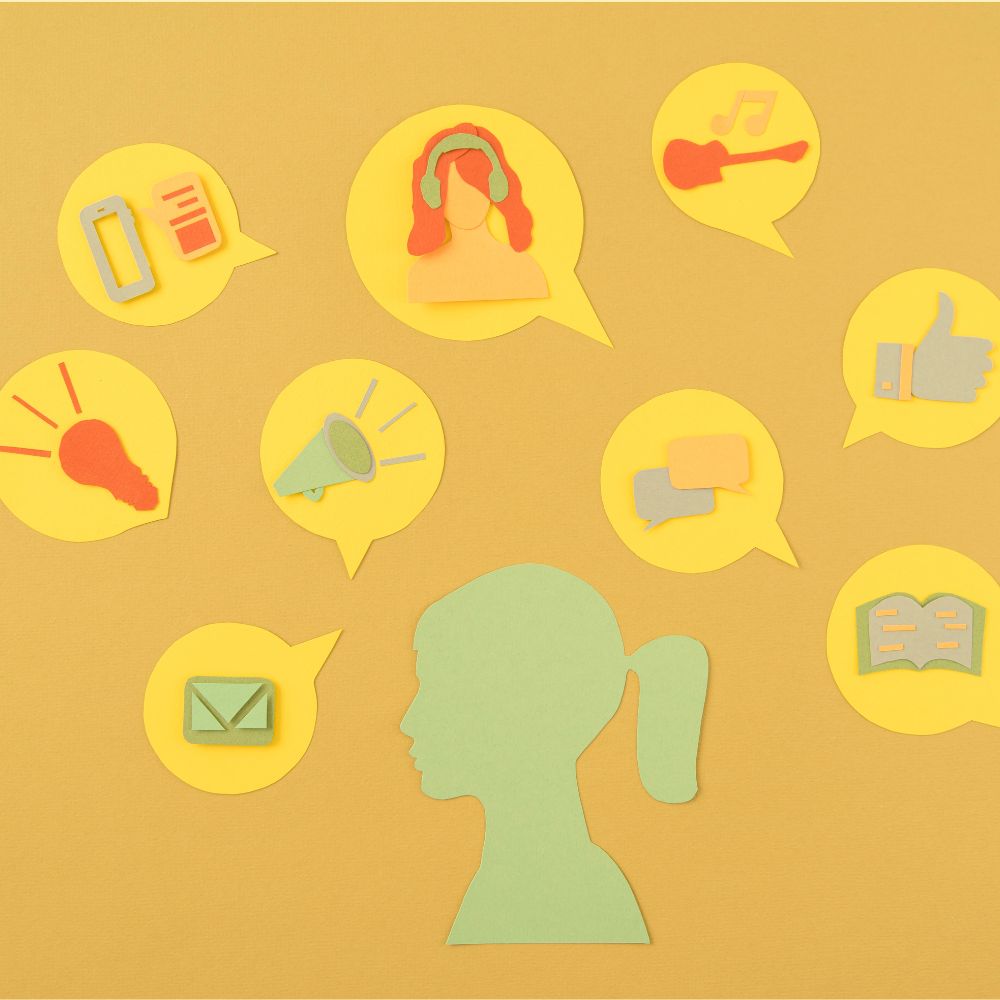
Authenticity sells: how to find your voice
Is your content not connecting? Learn why perfection doesn’t sell and how authenticity, storytelling, and the strategic mix of formats can turn your message into a memorable experience.

Interview multiple candidates
Lorem ipsum dolor sit amet, consectetur adipiscing elit proin mi pellentesque lorem turpis feugiat non sed sed sed aliquam lectus sodales gravida turpis maassa odio faucibus accumsan turpis nulla tellus purus ut cursus lorem in pellentesque risus turpis eget quam eu nunc sed diam.
Search for the right experience
Lorem ipsum dolor sit amet, consectetur adipiscing elit proin mi pellentesque lorem turpis feugiat non sed sed sed aliquam lectus sodales gravida turpis maassa odio.
- Lorem ipsum dolor sit amet, consectetur adipiscing elit.
- Porttitor nibh est vulputate vitae sem vitae.
- Netus vestibulum dignissim scelerisque vitae.
- Amet tellus nisl risus lorem vulputate velit eget.

Ask for past work examples & results
Lorem ipsum dolor sit amet, consectetur adipiscing elit consectetur in proin mattis enim posuere maecenas non magna mauris, feugiat montes, porttitor eget nulla id.
- Lorem ipsum dolor sit amet, consectetur adipiscing elit.
- Netus vestibulum dignissim scelerisque vitae.
- Porttitor nibh est vulputate vitae sem vitae.
- Amet tellus nisl risus lorem vulputate velit eget.
Vet candidates & ask for past references before hiring
Lorem ipsum dolor sit amet, consectetur adipiscing elit ut suspendisse convallis enim tincidunt nunc condimentum facilisi accumsan tempor donec dolor malesuada vestibulum in sed sed morbi accumsan tristique turpis vivamus non velit euismod.
“Lorem ipsum dolor sit amet, consectetur adipiscing elit nunc gravida purus urna, ipsum eu morbi in enim”
Once you hire them, give them access for all tools & resources for success
Lorem ipsum dolor sit amet, consectetur adipiscing elit ut suspendisse convallis enim tincidunt nunc condimentum facilisi accumsan tempor donec dolor malesuada vestibulum in sed sed morbi accumsan tristique turpis vivamus non velit euismod.
Find your voice in digital content
If you’re reading this, chances are one of the questions running through your head is: “Why isn’t my content connecting?”
Maybe you spend hours creating perfectly lit videos, or writing flawless texts that, in theory, have everything to succeed. But the reality is engagement is low, people don’t stop to listen, and you feel like your message gets lost in a sea of information.
And I get it completely. We’ve been sold the idea that the key to success in digital marketing is perfection, high-quality production, and repeating formats that supposedly “work.” But let me tell you something that may sound counterintuitive, but is the plain truth: more often than not, perfection is the enemy of connection.
The reality is that while metrics and algorithms matter, the soul of a successful marketing strategy is not technology, but something much simpler and far more powerful: authenticity.
The myth of the perfect ad: what truly connects with people
In one of my recent sessions, we were talking about this with someone from the community. She shared that she had been testing several ad versions: some highly produced, some more casual, and even one she recorded while sitting in her car. The result was eye-opening: the car video performed the best—it had the highest engagement.
This leads us to a fundamental truth we sometimes forget: on social media, people aren’t looking for a TV commercial. They’re looking for human connection. They want to see real people with real lives. They want to feel like you’re talking to them directly, not selling from behind a storefront window.
And this is where one of the most important lessons I’ve learned comes into play: people are the ones who decide if an ad is good or not—not us.
We can spend hours refining the design, the copy, the color palette, but at the end of the day, it’s the audience’s reaction that tells us if we’re on the right track. That’s why digital marketing isn’t an exact science—it’s an ongoing process of trial and error. It’s about testing, learning, and discovering what truly resonates with your people.
The difference between awareness content and depth content
To better understand this, it helps to think of your content strategy on two levels:
Awareness content: This type of content is created with a very clear goal: reaching as many people as possible. Short videos, reels, or infographics that cover trending topics in a simple, engaging way. The intention here isn’t to sell, but to build awareness—getting people to hear about you and notice you for the first time.
Depth content: This is more detailed, technical, and educational. Think blog posts, long-form YouTube videos, podcasts, or newsletters. The goal is to go deeper into your methodology, your approach, and the real value you offer.
The key is to combine both. Use awareness content to attract new people, and once you’ve caught their attention, give them depth content so they can truly connect with your message. This is where you need to be strategic—if your reach content only aims for quick clicks or viral lines, you may end up attracting an audience that doesn’t connect with your real vision.
From my experience at Desansiedad, for example, there were certain words and terms that generated a lot of reach, but we chose to sacrifice some of it because we didn’t want the brand associated with those phrases. It’s a delicate dance between what you know attracts the masses and what truly represents your project’s values.
Your storytelling is your superpower
During the session, someone shared an amazing insight: the scripts that sold the most were the ones with storytelling.
In the world of wellness, storytelling is essential because it’s the most powerful tool you have to create emotional connection with your audience. It’s not just about telling a story—it’s about crafting a narrative your audience can see themselves in. When you share an experience, a challenge, or a lesson, people often think: “Yes! That happens to me too.”
Here are some key points to start using storytelling effectively:
- Find your stories: Reflect on your journey. How did you start? What were your biggest challenges? What discoveries have you made along the way? Your experiences, mistakes, and wins are the stories that will resonate.
- Speak in your personal voice: Forget stiff, technical language. Talk like you would to a friend. Use phrases like “in my opinion,” “in my experience,” “I’ve thought about this.” This builds intimacy and trust that no formal language can. People don’t want a robot—they want someone they can relate to.
- Don’t obsess over keyword stuffing: Keywords matter, but they’re no longer the main focus. Today’s algorithms value personal voice, narrative, and originality. An article like “My Experience with Reiki Over the Last Ten Years” is far more valuable than a generic “10 Ways to Use Reiki at Home.”
- Use your founder’s voice: Share notes about your project, your vision, your lessons as a wellness professional. What do you want to change in your field? This type of content not only positions you but also builds a loyal community.
The digital migration: when your presence goes global
Another topic that came up in the session was migrating from an in-person business to a digital one, and the concern over whether changing a YouTube channel name, for example, would affect SEO. The short answer: no, it doesn’t take away from you.
If you already have a strong digital footprint, people will find you anyway. What matters more is unifying your channels. Think of it as a brand “tidying up”—your domain, social media handles, and YouTube channel name should all point in the same direction to make you easier to remember and find.
If you need a more complex migration, like moving a website, yes, it can be done. It’s a technical process called redirection, where you tell Google that traffic from one URL should now go to another. It’s common practice, and you won’t lose ranking if you do it correctly. It can be tedious, especially if you have hundreds of articles, but it’s worth it to put your digital house in order.
It’s not about quantity, but value
Another important concern is the amount of content you should create. “Is 16 hours of content enough for a course?” The truth is the answer isn’t in the amount—it’s in the value.
It’s not about the length of the material, but the transformation you deliver. If your 16-hour course helps someone solve a real problem, achieve a concrete goal, and feel their life has improved, then those 16 hours are infinitely more valuable than a 50-hour course that doesn’t deliver clear benefits.
So, the game is always to ask yourself: What am I offering the person consuming my content? What’s the promise? If you can answer that clearly, you don’t need to worry about quantity.
Start experimenting today
The digital world is constantly changing, and the only way to succeed is by staying flexible, curious, and above all—human.
So, remember this:
- Forget perfection: Record that ad in your car, write from your personal experience, share your founder’s notes. Authenticity is a magnet for your audience.
- Run tests: Launch different ad versions and see which resonates most. People will tell you what works and what doesn’t.
- Combine reach and depth: Use short, entertaining content to attract, and long-form, substantial content to retain.
- Organize your digital presence: If possible, unify your channels and platforms so everyone can find you under one consistent brand.
And please, take comfort in knowing you don’t need to be an expert in everything. You already have the knowledge and expertise in your niche—that’s what truly matters. Digital marketing is simply a tool to amplify what you already do best.
People are looking for solutions to their problems. Are you ready to offer yours in a way that truly connects?
Related posts
Subscribe to my newsletter








